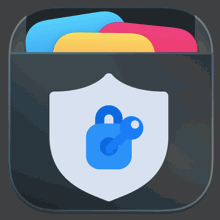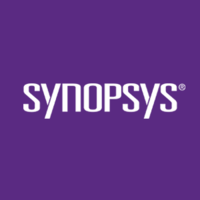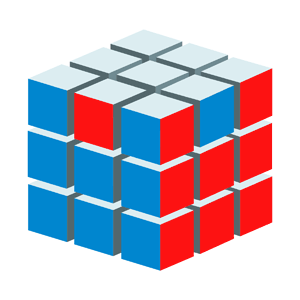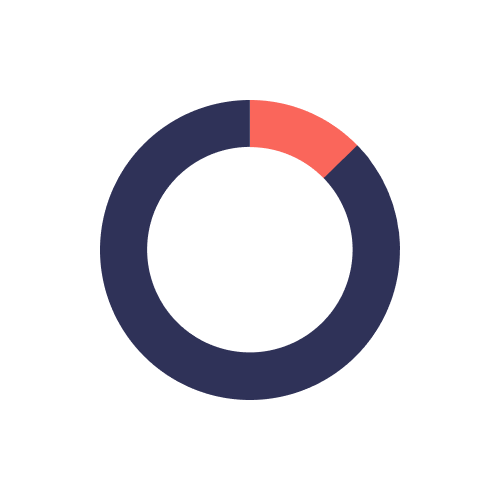Description

Easy App Locker

Kaspersky
Comprehensive Overview: Easy App Locker vs Kaspersky
Here's a comprehensive overview of Easy App Locker, Kaspersky, and Netsparker, focusing on their primary functions, target markets, market share, user base, and key differentiating factors:
Easy App Locker
a) Primary Functions and Target Markets:
- Primary Functions: Easy App Locker is primarily a mobile application designed to secure individual apps on smartphones by implementing password protection. It helps users lock applications, offering enhanced privacy and security by using password, pattern, or fingerprint authentication.
- Target Markets: The target market mainly includes individual smartphone users who prioritize privacy and wish to secure their apps from unauthorized access. It appeals particularly to users of Android and iOS devices, although most such apps are generally more prevalent on Android due to its open system.
b) Market Share and User Base:
- Market Share: As a platform-specific tool mainly for Android, it is not a standalone company-wide software but rather one among many similar app locker applications available on app stores. The exact market share is difficult to determine, but it is one piece of a large ecosystem of similar utilities.
- User Base: Typically popular among privacy-conscious individuals worldwide, particularly in regions where people share phones more openly.
c) Key Differentiating Factors:
- Simplicity and ease of use, with a focus on user-friendly interfaces for quick app locking.
- Special features like fake error messages for additional security.
- Functional in environments where mobile device sharing is common, providing granular control over app access.
Kaspersky
a) Primary Functions and Target Markets:
- Primary Functions: Kaspersky Lab is well-known for its comprehensive internet security solutions, including antivirus software, anti-malware applications, endpoint protection, and cyber threat intelligence. It focuses on protecting PCs, Macs, mobile devices, and enterprise IT environments against viruses and online threats.
- Target Markets: Kaspersky targets both individual consumers and businesses of all sizes, making it popular in homes, small to medium-sized businesses (SMBs), and large enterprises globally.
b) Market Share and User Base:
- Market Share: Kaspersky is considered one of the leading global players in the cybersecurity market. Its market share fluctuates due to geopolitical implications, but it remains a significant competitor.
- User Base: Millions of users worldwide, with a strong presence in markets like Europe and parts of Asia.
c) Key Differentiating Factors:
- Strong emphasis on intelligence-driven cybersecurity solutions.
- Reputation for thorough malware research and an extensive database.
- Offers a wide range of security products covering different aspects of cybersecurity.
Netsparker
a) Primary Functions and Target Markets:
- Primary Functions: Netsparker is a web application security scanner that automatically identifies vulnerabilities in web applications and web services. Its core capability includes detecting and managing vulnerabilities like SQL Injection and Cross-Site Scripting (XSS) with a high degree of accuracy.
- Target Markets: Primarily aimed at IT security teams within small to large enterprises, especially those developing and deploying web applications services.
b) Market Share and User Base:
- Market Share: Netsparker is a well-regarded tool in the realm of penetration testing and web security but has a smaller market share in comparison to broad-spectrum security providers. It competently occupies a niche within web application security.
- User Base: Consists of enterprises focusing heavily on web application development, especially those within industries with high data sensitivity like finance and healthcare.
c) Key Differentiating Factors:
- Automated crawling and scanning capabilities that reduce the need for manual input.
- Proof-Based Scanning technology, ensuring fewer false positives.
- Seamless integration with development environments and CI/CD pipelines, essential for devops workflows.
Comparison
- Market Focus: Easy App Locker is primarily aimed at personal users interested in app privacy, Kaspersky covers broad security needs for individuals and businesses, and Netsparker specializes in web application security within enterprises.
- Differentiators: Each product has distinct features tailored to its specific markets—ranging from individual app locking to comprehensive cybersecurity measures to specialized vulnerability scanning.
- Market Share: Kaspersky likely has the largest overall market reach globally due to its diverse product offerings, followed by Netsparker in the enterprise sector, while Easy App Locker participates as a utility tool within mobile app ecosystems.
Contact Info

Year founded :
Not Available
Not Available
Not Available
Not Available
Not Available

Year founded :
1997
Not Available
Not Available
Switzerland
Not Available
Feature Similarity Breakdown: Easy App Locker, Kaspersky
To provide a detailed feature similarity breakdown for Easy App Locker, Kaspersky, and Netsparker, it's important to understand each product's core functionality and target market. Here's an analysis based on their general offerings:
a) Core Features in Common
While each product serves distinct purposes — Easy App Locker for app locking, Kaspersky for antivirus/security, and Netsparker for web application security — they may share some overarching security features:
-
Security Focus: All three products are focused on enhancing security, albeit in different contexts (app, system, and web application security).
-
User Authentication: Each employs some form of authentication mechanism to ensure that only authorized users gain access, whether it’s locking apps, scanning systems for threats, or securing web applications.
-
Alerts & Notifications: Common across these tools is the ability to alert users of potential security threats or breaches.
-
Reporting: They all offer some reporting functionality to inform users about security status or actions taken.
b) User Interface Comparison
-
Easy App Locker: Typically, app lockers have a very straightforward and minimalist user interface, focusing on usability and quick access. The interface usually consists of lists of apps with toggles or security methods (like patterns or PIN codes) to apply locks.
-
Kaspersky: Known for its comprehensive virus protection suite, Kaspersky offers a more complex interface with advanced options. It typically includes dashboards, customizable settings, scanning options, and detailed reports. While feature-rich, it aims to be user-friendly for both basic users and tech-savvy individuals.
-
Netsparker: As a web application security tool, Netsparker tends to have a more technical interface, designed for developers and security professionals. It features detailed scan configuration options, dashboards for vulnerability management, and comprehensive reporting tools.
c) Unique Features
-
Easy App Locker:
- Application-Specific Locking: The primary unique feature is its ability to lock individual apps on a device, something not usually offered by comprehensive security suites or web application security tools.
- Customization Options: May offer customization options for theming or different lock types (e.g., PIN, fingerprint).
-
Kaspersky:
- Threat Detection and Removal: Known for its antivirus capabilities, with real-time protection against malware, phishing, and ransomware.
- Virtual Keyboard: A feature to prevent keyloggers from capturing keystrokes.
- Privacy Tools: Includes specific privacy features like webcam protection or private browsing.
-
Netsparker:
- Automated Vulnerability Scanning: Specializes in scanning web applications for security vulnerabilities automatically.
- Integration with DevOps Tools: Provides seamless integration with development environments and CI/CD pipelines, useful for developer workflows.
- Proof-Based Scanning: Offers proof-based scanning that demonstrates the presence of vulnerabilities, minimizing false positives.
Conclusion
While Easy App Locker, Kaspersky, and Netsparker all cater to the security landscape, their focus areas and unique features significantly distinguish them from one another. Each is tailored to meet the specific needs of its users — from individuals seeking to secure apps to enterprises aiming to protect systems or web applications.
Features

Customization Options
Security Features
Performance
User-Friendly Interface

User-Friendly Experience
Advanced Security Tools
Comprehensive Cybersecurity Solutions
Performance and Reliability
Best Fit Use Cases: Easy App Locker, Kaspersky
a) Easy App Locker
Easy App Locker is best suited for individual users and small businesses seeking straightforward and efficient methods to secure mobile applications on Android devices. It is typically used to:
- Small Businesses: Protect sensitive apps such as messaging, social media, and financial applications that employees use on company-owned mobile devices.
- Personal Use: Individual users who wish to add an extra layer of security to apps on their smartphones to safeguard personal information.
The app is most appropriate for businesses and projects where there is a need for application-level security but not necessarily comprehensive, enterprise-grade solutions.
b) Kaspersky
Kaspersky offers a range of cybersecurity products, from antivirus solutions to comprehensive enterprise security platforms. It is usually the preferred option under the following scenarios:
- Small to Medium-Sized Enterprises (SMEs): Looking for robust antivirus and endpoint security solutions that are cost-effective.
- Enterprises: Larger organizations that require comprehensive security including threat intelligence, data protection, and systems management capabilities.
- Individuals and Families: Consumers looking for reliable internet security and antivirus protection for personal use.
Kaspersky is favored by businesses that need a trusted name in internet security and protection against a wide range of cyber threats, including malware and ransomware.
c) Netsparker
Netsparker is a fully automated web application security scanner ideal for scenarios where:
- Development Teams in Enterprises: Conducting regular security assessments and looking for fast and accurate scanning capabilities that integrate seamlessly into CI/CD workflows.
- Security Consultancies: Require a reliable and precise scanning tool to offer web application security services to their clients.
- Organizations with Web Applications: Any company invested in the security of their web applications and needing a tool that provides accurate and actionable results without false positives.
Users should consider Netsparker when there is a focus on web application security specifically, and the need is to efficiently identify vulnerabilities like SQL injection or cross-site scripting.
d) Catering to Different Industry Verticals or Company Sizes
- Easy App Locker: Primarily targets individuals and smaller businesses across various industry verticals where personal or non-critical business application security is needed.
- Kaspersky: Caters to a wide range of industries including finance, healthcare, manufacturing, and government due to its extensive capabilities ranging from basic antivirus to advanced threat detection. It is scalable and offers solutions for both consumers and enterprises.
- Netsparker: Particularly aligns well with industries with a strong focus on web applications, such as technology, e-commerce, and digital services. Its scalability and precision make it suitable for businesses ranging from small development teams to large enterprises with multiple web assets.
Each product serves a niche in cybersecurity, aligning with specific security needs and scales, providing options from basic application locking to advanced web vulnerability detection.
Pricing

Pricing Not Available

Pricing Not Available
Metrics History
Metrics History
Comparing undefined across companies
Conclusion & Final Verdict: Easy App Locker vs Kaspersky
To provide a comprehensive conclusion and final verdict on Easy App Locker, Kaspersky, and Netsparker, we need to evaluate them in the context of their intended purposes and user needs, as they serve distinct functions in the security domain.
Conclusion and Final Verdict:
a) Overall Value Assessment:
-
Kaspersky offers the best overall value for general cybersecurity needs. As a comprehensive security suite, it covers antivirus, malware protection, internet security, and privacy tools. This suite makes it the best choice for personal users and small to medium-sized businesses looking for a robust all-rounder.
-
Netsparker provides excellent value for enterprises and developers that require advanced web application security. Its automated vulnerability scanning for web applications is particularly valuable for organizations with web assets.
-
Easy App Locker offers niche value primarily for individual users or small businesses primarily seeking application-level security, such as locking access to specific apps.
b) Pros and Cons:
-
Easy App Locker:
- Pros:
- Simple and user-friendly, focuses specifically on application access.
- Suitable for personal devices to provide additional privacy by locking specific apps.
- Cons:
- Limited in scope compared to full-fledged security solutions.
- Lacks comprehensive malware protection and broader cybersecurity features.
- Pros:
-
Kaspersky:
- Pros:
- Comprehensive security features, including antivirus, anti-malware, VPN, parental controls, and more.
- Regular updates and robust threat detection capabilities.
- Cons:
- May consume more system resources, potentially slowing down older devices.
- Some users express privacy concerns over data handling, relevant to specific geopolitical areas.
- Pros:
-
Netsparker:
- Pros:
- Highly effective for detecting vulnerabilities in web applications.
- Automated scanning with a focus on accuracy reduces false positives, saving time for developers.
- Cons:
- Primarily beneficial for enterprises; individual users or businesses without web applications may find it unnecessary.
- Can be expensive, making it less suitable for small businesses or individual users.
- Pros:
c) Recommendations:
- Individual or Home Users:
- Opt for Kaspersky if comprehensive device security is a priority. If additional app-specific privacy controls are needed without full system security, consider Easy App Locker as a supplement.
- Small to Medium Businesses:
- Choose Kaspersky for an overall security solution, unless there is a specific requirement for app locking, in which case, Easy App Locker could be an add-on.
- Developers and Enterprises:
- Netsparker is recommended if web application security is crucial, ensuring thorough and regular security checks. Pair with Kaspersky for endpoint security to cover all bases.
In summary, the optimal choice depends significantly on the user’s specific needs. For comprehensive device and internet security, Kaspersky is a go-to choice. For app-specific security, Easy App Locker fills a niche requirement, whereas Netsparker is designed for robust web application security in enterprise environments.
Add to compare
Add similar companies



